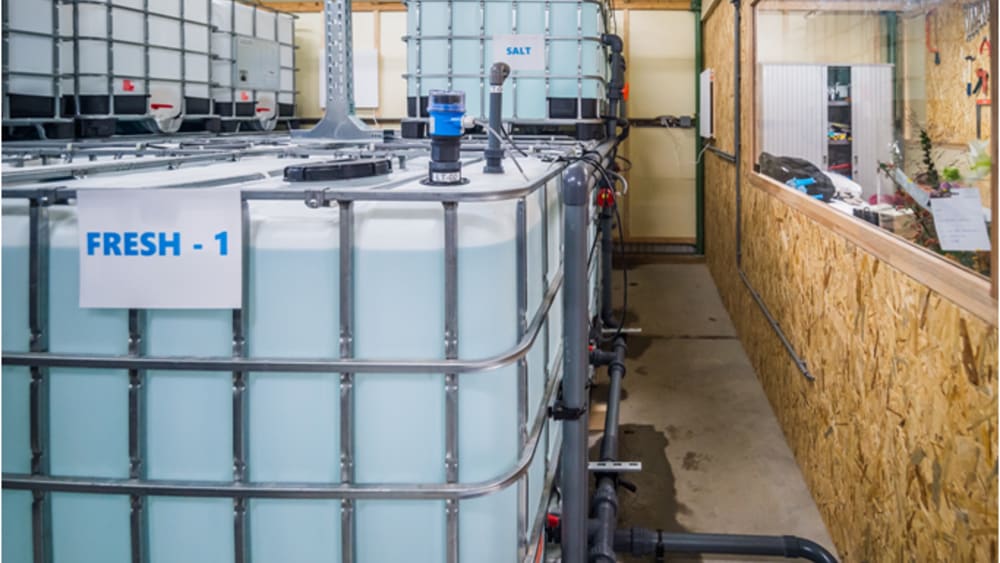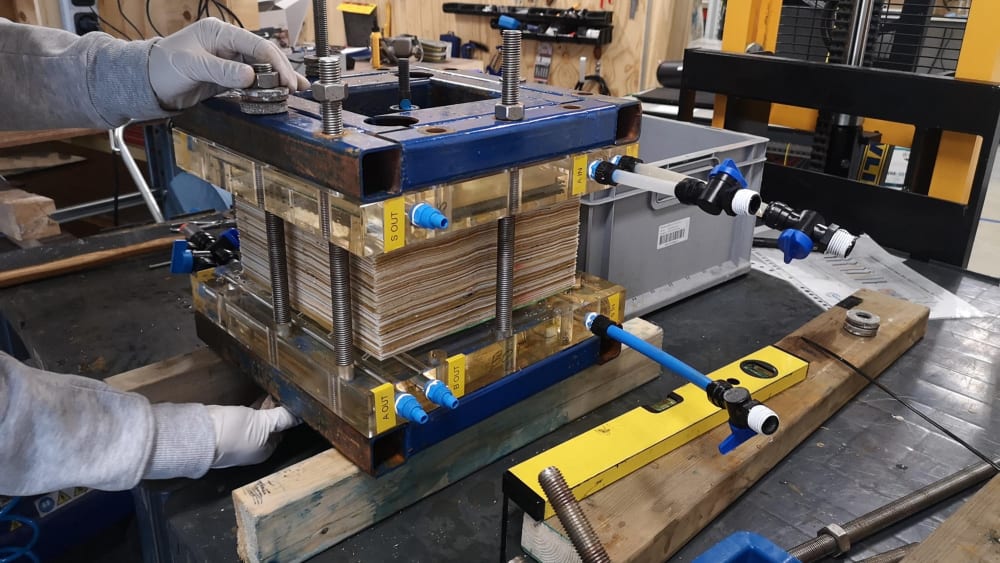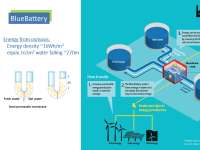
The proposed innovation is a sustainable, cost-effective and scalable flow battery that can store excess renewable energy in water (H2O) and table salt (NaCl). I have named this the BlueBattery. It is a combination of two well-established technologies: [1] Electrodialysis (ED), which uses electricity to desalinate water with the help of special ion-exchange membrane. ED produces a stream of concentrated salty water and a stream of freshwater from brackish water. [2] The reverse is also possible. One can perform Reverse Electrodialysis (RED), i.e. mixing salty water with fresh water to produce electrical energy. Renewable energy sources are intermittent; this means that electricity generation using these sources fluctuates. To supply the world with 100% renewable energy, energy storage is indispensable. Conventional battery technologies, such as those based on lithium and lead-acid, use toxic materials, are expensive and sometimes unsafe. The BlueBattery use only H2O and NaCl as the storage medium, which are abundantly available on earth and cheap as well. Also, even at an event of an accident, the BlueBattery is safe. I cannot explode, unlike some lithium batteries. The BlueBattery is highly scalable. As a matter of fact, the power (often expressed in kW) and the energy storage capacity (usually expressed in kWh) are decoupled unlike lithium or lead-acid batteries. This means that one can design a BlueBattery with relatively small power and can store energy for days to weeks. This can be cost-effective only with the BlueBattery.
The BlueBattery is frankly quite simple to manufacture. A stack of ion-exchange membranes needs to be made to perform ED and RED. Thus consume power to desalinate water or use concentrated salty water and freshwater stream to generate energy. Other than that, one needs tanks to store brackish water (somewhat salty water), brine (very salty water) and freshwater. Thus it is easy to implement. A large-scale demonstration pilot of this technology has been built on the Green Village located the campus of technical university of Delft in the Netherlands. It stores solar energy during the day, and during the night it provides power to 6 student houses. By scaling up production of the ion-exchange membranes, the cost can be lowered several orders of magnitude.
This idea can play an essential role in accelerating the transition to renewable energy sources. With the expected increase of installed renewable energy generation capacity, the demand for sustainable energy storage will also increase to balance energy supply and demand at various timescales. Energy storage systems that are cost-effective, sustainable and can handle energy storage for extended periods of time (storing energy to supply for days to weeks) are lacking. The BlueBattery is the first energy storage system that is truly sustainable, safe and highly scalable.
Video
-
Awards
-
 2020 Top 100 Entries
2020 Top 100 Entries
Like this entry?
-
About the Entrant
- Name:Jiajun Cen
- Type of entry:individual
- Software used for this entry:COMSOL Multiphysics
- Patent status:patented








